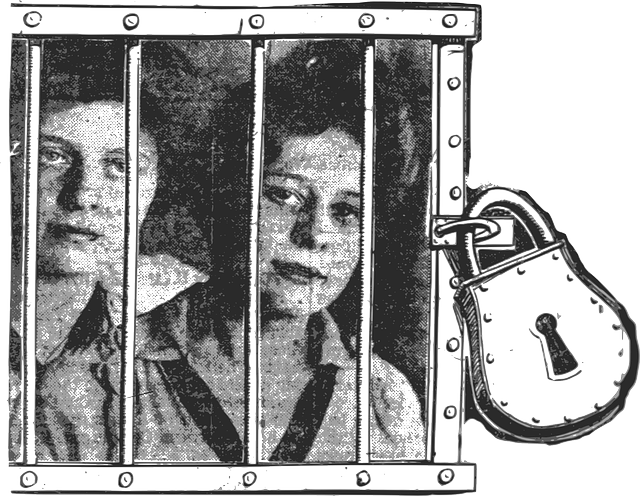Veterans returning from service face unique challenges with DUI charges due to interaction between prescriptions for service-related injuries, PTSD symptoms, and decision-making impairments. Specialized legal aid offers tailored defenses and explores alternative transportation options like public transit, bike-sharing, or carpooling networks to address these issues safely and legally. Understanding veterans' limited access to such options and leveraging evidence of readjustment difficulties can lead to more favorable outcomes, supporting their reintegration into civilian life.
Veterans facing DUI charges often encounter unique challenges due to their service. “Veteran’s DUI Defense Tailored Help” explores the intricate interplay of DUI laws and their impact on these individuals, delving into specific obstacles they face in legal proceedings. This article highlights the importance of tailored support, focusing on alternative transportation options as a key component in building robust defense strategies for veteran clients. By understanding their unique circumstances, we can ensure fair outcomes.
- Understanding DUI Laws and Their Impact on Veterans
- Challenges Faced by Veterans in DUI Cases
- Providing Tailored Support: Alternative Transportation Options
- Building a Strong Defense Strategy for Veteran Clients
Understanding DUI Laws and Their Impact on Veterans

Veterans returning from service face unique challenges, including reintegration into civilian life and navigating complex legal systems. DUI (Driving Under the Influence) laws are no exception, often carrying stricter penalties than in the general population. Understanding these laws is crucial for veterans to protect themselves legally.
DUI regulations vary by jurisdiction, but generally, operating a vehicle with a blood alcohol content (BAC) above the legal limit is considered a crime. For veterans, additional factors may come into play, such as potential prescriptions for service-related injuries or conditions, which can interact with alcohol and impact BAC levels. Moreover, the stress and trauma associated with military service could lead to substance use disorders, making it essential to consider alternative transportation options for those facing DUI charges.
Challenges Faced by Veterans in DUI Cases

Many veterans face unique challenges when navigating DUI (driving under the influence) cases, which often require tailored legal strategies. One significant hurdle is the potential struggle with post-traumatic stress disorder (PTSD), a common issue among veterans. This mental health condition can impact decision-making and behavior, potentially leading to impaired judgment when facing stressful situations like traffic stops. As a result, veterans may find themselves in complex legal situations due to their PTSD symptoms, even if they’ve never had a previous DUI offense.
Additionally, the transition from military service to civilian life can bring about significant changes in routine and environment, which might disrupt established coping mechanisms. This disruption could contribute to poor choices, including getting behind the wheel while under the influence of alcohol or drugs. Fortunately, veterans facing DUI charges have access to specialized legal aid that understands these challenges. By offering tailored defenses and exploring alternative transportation options, such as veteran-specific rehabilitation programs, these services aim to provide the support needed to navigate the legal system effectively.
Providing Tailored Support: Alternative Transportation Options

When faced with DUI charges, veterans often need more than legal counsel; they require tailored support that understands their unique circumstances. One critical aspect of this is offering alternative transportation options. Many veterans may have relied on vehicles for mobility due to service-related disabilities or simply as a matter of habit. In the midst of a DUI case, these means of transport can become restricted or even forbidden by court orders.
Providing alternative solutions, such as organizing reliable public transportation services, bike-sharing programs, or carpool networks, ensures veterans have safe and dependable ways to get around without risking further legal repercussions or endangering themselves or others. These options not only help them navigate their daily lives but also demonstrate a comprehensive approach to DUI defense, addressing both the legal and practical challenges veterans face.
Building a Strong Defense Strategy for Veteran Clients

For veteran clients facing DUI charges, crafting a robust defense strategy requires a nuanced understanding of their unique circumstances. Many veterans struggle with access to reliable alternative transportation options, often due to limited resources or challenges re-adjusting to civilian life post-service. This reality can significantly impact their decision-making process on the night in question, potentially mitigating their guilt. A skilled defense attorney should explore these factors, delving into medical records, service history, and community support systems to build a compelling narrative that reduces culpability or even points towards an alternative explanation for the incident.
By leveraging evidence related to post-traumatic stress disorder (PTSD), substance abuse issues, or readjustment difficulties, defense counsel can navigate the legal system with a veteran client’s best interests in mind. This tailored approach ensures that their specific needs and challenges are addressed, potentially resulting in more favorable outcomes and a renewed sense of support for these individuals as they reintegrate into civilian life.
Veterans facing DUI charges require specialized support due to unique challenges, including access to care and potential post-traumatic stress. By offering tailored assistance, such as connecting them with alternative transportation options, we can ensure these individuals receive fair treatment. Understanding their specific needs and building a robust defense strategy are crucial steps in supporting our veterans and helping them navigate the legal system effectively.






